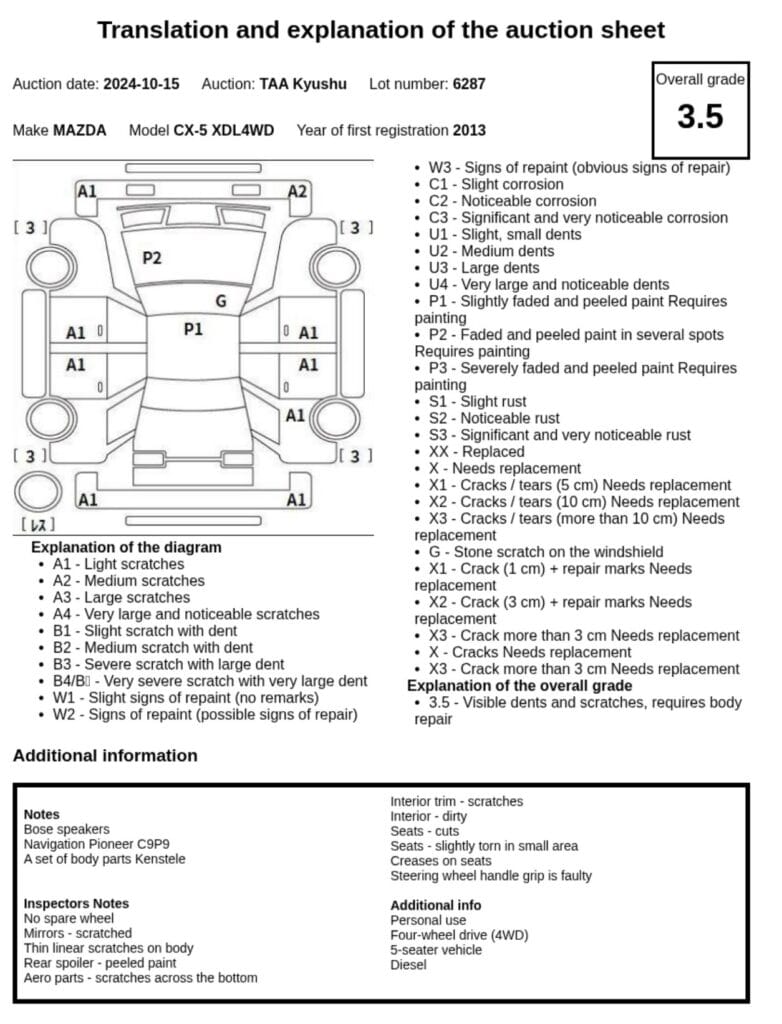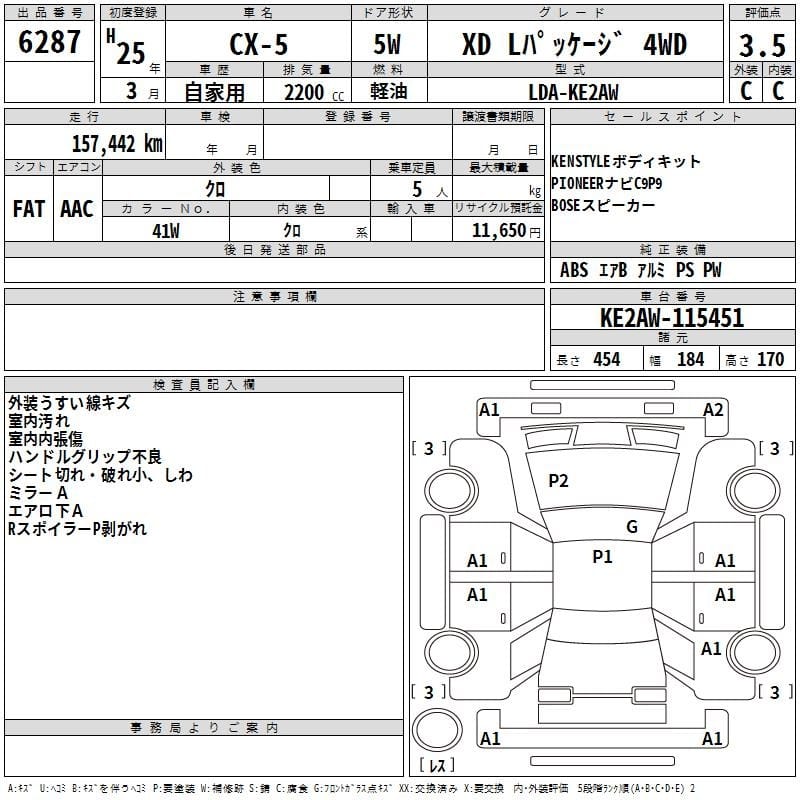Japanese auction sheet in english is a translated version of the detailed condition report for cars sold in Japan. This vital document uses grades (like 4, 5, or R), mileage readings, and damage symbols to describe a vehicle’s history and quality. For international buyers, obtaining and understanding a Japanese auction sheet in english—through professional translation or verification services—is the key to making a safe and informed purchase, ensuring you grasp the true condition of the car before you buy.

Here’s a simple breakdown of the most important parts:
1. Vehicle Grade
This is like a grade in school—it tells you how good the car is.
- Grade 5 or S – Almost new! No scratches or issues.
- Grade 4 or 4.5 – Very good condition with minor wear.
- Grade 3 or 3.5 – Average condition; might need small repairs.
- Grade R or 0 – The car has been in an accident or has major issues.
Example: A Grade 4.5 car is a great choice—it’s clean but affordable.
2. Mileage
This shows how far the car has been driven. Lower mileage usually means less wear and tear.
- Good: Under 50,000 km
- Average: 50,000–100,000 km
- High: Over 100,000 km (might need more repairs)
3. Interior Grade
This rates the inside of the car (seats, steering wheel, etc.).
- A – Clean and tidy
- B – Minor stains or wear
- C – Rips, tears, or bad odors
4. Damage Codes
These codes show where the car has damage. Here are the most common ones:
- U – Dent
- S – Scratch
- W – Repair needed
- A – Small issue
- B – Medium issue
- C – Big issue
Example: If you see “U” on the front bumper, it means there’s a dent there.
5. Auction House Comments
Sometimes, the auction house adds notes like “new tires” or “engine noise.” Always read this section carefully!
📜 Sample Japanese Auction Sheet in English
Let’s look at a real example from TAA Kyushu Auction House:

Vehicle: MAZDA CX-5 2013
Grade: 3.5
Mileage: 157,442 km
Interior: C
Damage Codes: A1 (Small Scratch) on all doors, G (stone chip) on front windscreen
Comments: Regular maintenance
This car is in average condition! The grade is low, the mileage is high and the issues are minor.
❓ What If You’re Still Confused?
If you’re unsure about reading a Japanese auction sheet in English, don’t worry! You can:
- Use a Verification Service – Websites like AutoOnes.com can translate and explain the sheet for you.
- Ask for Help – Comment below, and we’ll help you understand your auction sheet!
✅ Final Tips for Beginners
- Always check the grade first – Avoid “R” or “0” grades if you’re new to buying.
- Look for low mileage – Less driving usually means fewer problems.
- Read the comments – They might reveal hidden issues or good surprises!
- Verify with an expert – If you’re unsure, get help from a professional.
🌟 Conclusion
Understanding a Japanese auction sheet in English is easier than you think! Just focus on the grade, mileage, interior, and damage codes. If you need help, use a verification service or ask us in the comments.
Happy car buying! 🚗💨
Need your auction sheet translated? Visit AutoOnes.com for fast and accurate help!
